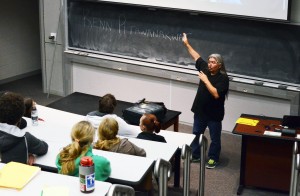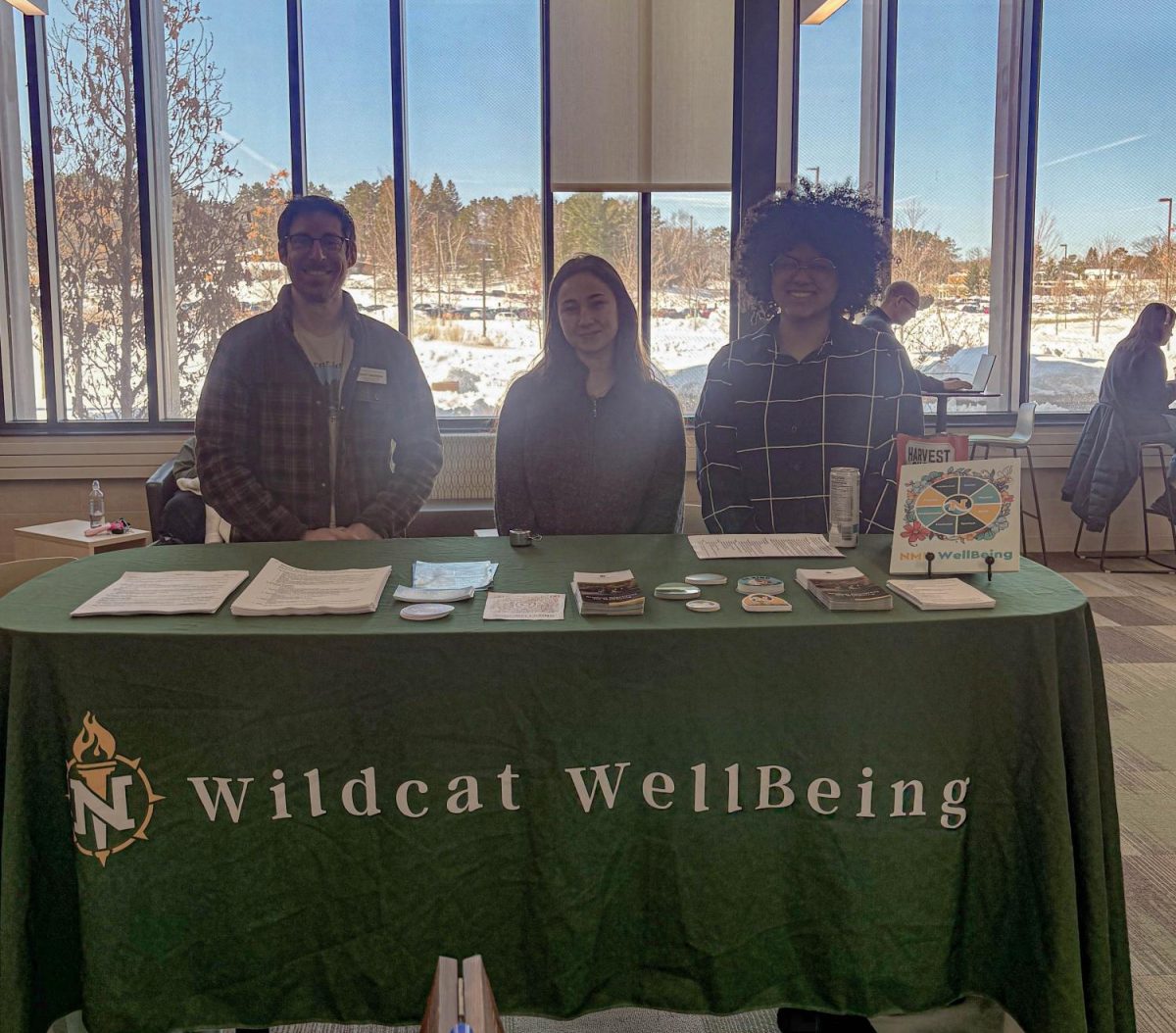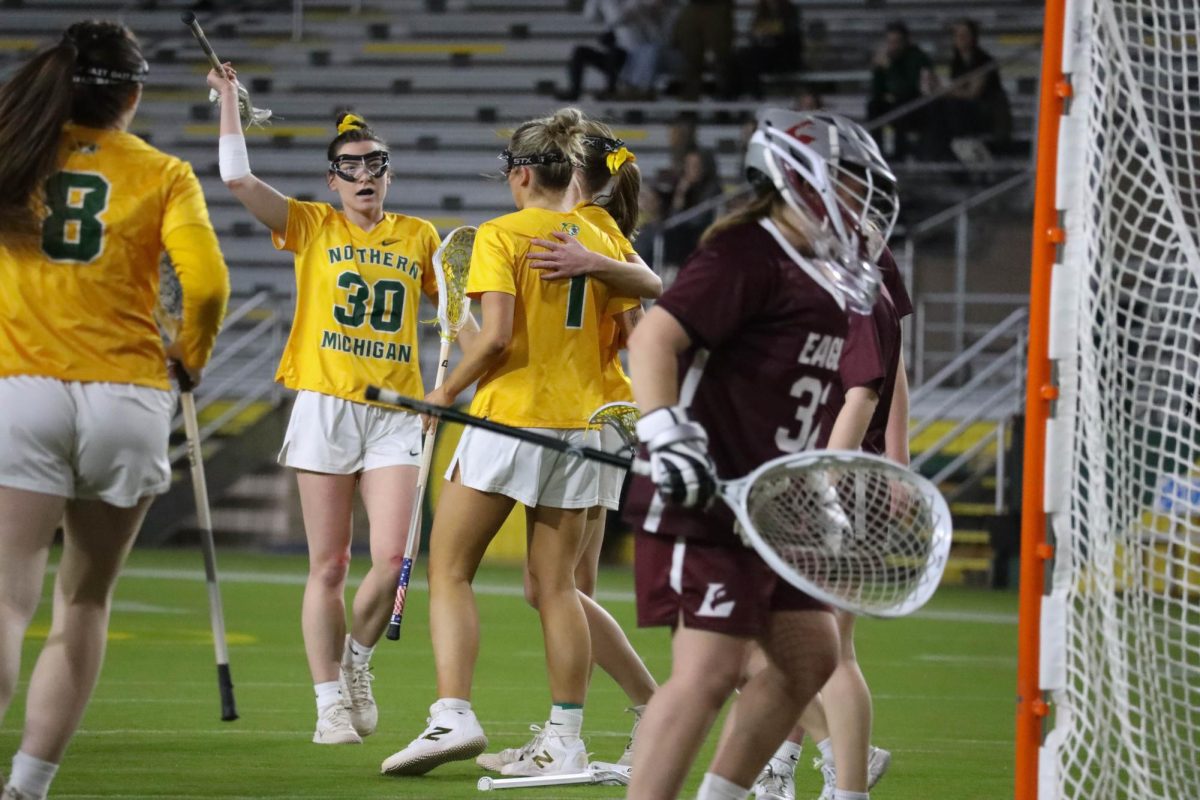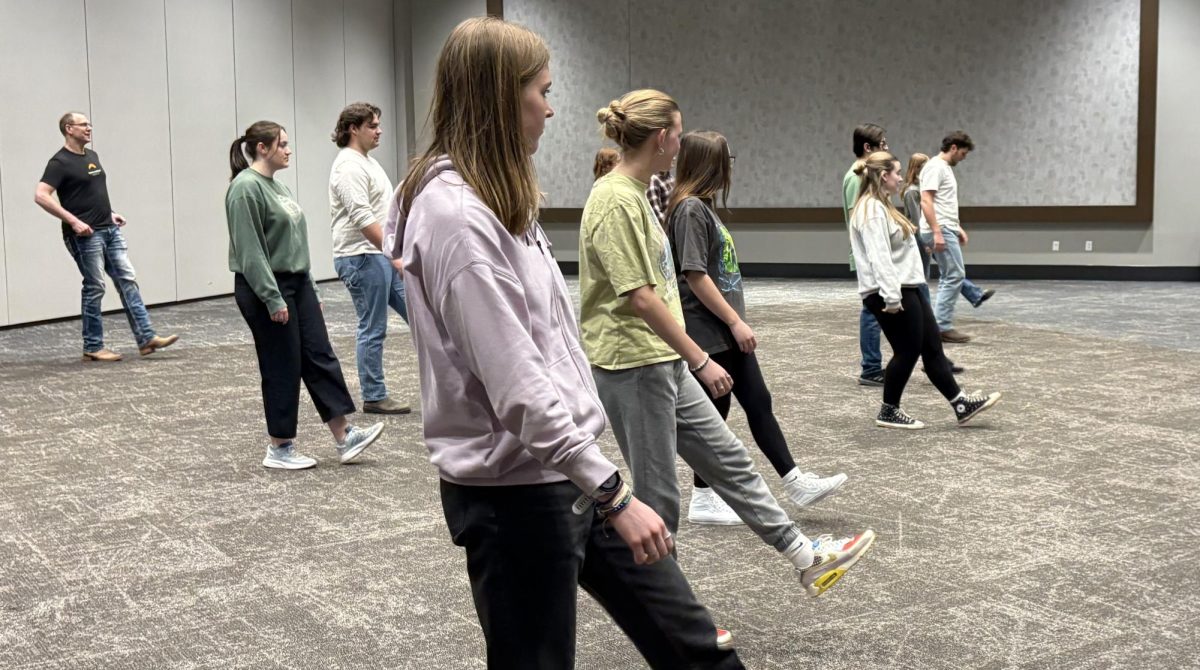With the newly-instated Michigan wolf hunt beginning on Friday, Nov. 15, students and community members have the opportunity to learn about and engage in conversation regarding the wolf hunt during Wolf Awareness Week, which began Monday, Oct. 14 and runs until Friday, Oct. 18.

The second-annual event, which is put on by the NMU Wildlife Society, is offering a series of speakers, ranging from widely-acclaimed wolf ecologists, researchers, Department of Natural Resources (DNR) officers and NMU professors.
While most of the event’s speakers have already visited NMU this week, NMU Wildlife Society President Kayla Ruth said the most anticipated event of the week will be on Thursday, Oct. 17, with a presentation by Rolf Peterson called “The Wolves and Moose of Isle Royale.”
“Thursday night is our big grand finale,” Ruth, a junior biology-ecology major, said. “We have Rolf coming down from Michigan Tech, and he’ll be giving a talk that was a huge hit last year and has gotten a lot of attention this year.”
Peterson, who is a professor in the School of Forest Resources and Environmental Science at Michigan Tech, has done extensive research on the ecology of wolves and their prey. He will speak at 6 p.m. in 2904 West Science.
Other speakers that have come as part of Wolf Awareness Week were Brian Roell, a Michigan DNR officer, NMU alumni Tyler Petroelje — who spoke of his research project involving a Michigan predator-prey study — as well as professor Kenn Pitawanakwat of the NMU Native American Studies Department, who spoke on Wednesday, Oct. 16.
According to Ruth, the event is all the more relevant because of the recent controversy surrounding the inception of a wolf hunt.
“Our biggest goal is that we just want to promote the education of wolves overall,” Ruth said. “This year there is a lot more controversy with the Michigan wolf hunt going on, and as an organization we’ve been neutral on the topic — as are the national wildlife societies.
“However we like to bring in speakers from all sides of the issue, that way anyone who is on the fence about the issue or just wants to learn more can get the information that they need.”
To end the week, Ruth said the NMU Wildlife Society will hold wolf-related workshops and games for children at the Moosewood Nature Center on Presque Isle, furthering the group’s commitment to education regarding wolf ecology.
“Education is our biggest thing,” she said. “We just want people to know what’s going on and what these animals are like.”
The wolf hunt itself, which runs from Friday, Nov. 15 until the end of the year or whenever the limit of 43 wolves have been taken, has accommodated the sale of 1200 total license. The licenses for the hunt were $100 for Michigan residents and $500 for non-residents. The hunt will only take place in a handful of western U.P. counties that have had trouble with wolves in the past, including Gogebic and Houghton counties, while Luce and Mackinac County in the east end of the peninsula will also be allowed a limited hunt. According to DNR estimates from 2011, there are around 660 documented wolves in the Upper Peninsula.
Catherine Parker, who gathered signatures for a referendum aimed at putting the wolf hunt on the November 2014 ballot, and is an employee at the NMU bookstore, agreed that open forums such as the events taking place during Wolf Awareness Week are crucial for acknowledgement of the wolf’s role in the Upper Peninsula.
“It’s important to have an event like this,” Parker said. “When I was talking to Brian (Roell) from where I was sitting up in the audience (on Monday, Oct. 14), he showed us a long list of game species in the state of Michigan, and he said ‘Why do people get so upset about wolves?’ and I said ‘I’m not sure.’
“But I think it has something to do with them being persecuted historically, they are not currently a game animal and people don’t want to get another animal listed.”
While the justification for the hunt is, among other things, that the presence of wolves in the western U.P. is damaging to deer and livestock numbers, the hunt has been met with strong opposition.
253,705 signatures were gathered during the 90-day referendum period following the implementation of Public Act 520, which names the wolf as a game species, in December 2012. While this would have typically forced a ballot referendum for the November 2014 election, it was instead met with Senate Bill 288 (or Public Act 21), which ultimately gave the Natural Resources Committee the responsibility to designate game species. Because the NRC and its decisions can not be subject to referendum, SB 288 became law in May, invalidating the signatures garnered during the referendum process.
Wolf Awareness Week continues at 6 p.m. on Thursday, Oct. 17, with Rolf Peterson’s “Wolves and Moose on Isle Royale” discussion in West Science 2904.
































Amanda • Oct 21, 2013 at 12:35 pm
Thanks, Catherine. I (and the North Wind Staff) appreciate your comments. We will include a correction this week.
Catherine Parker • Oct 18, 2013 at 12:54 pm
Please support the petition drive to help repeal Public Act 21.
It’s not just about the wolves. Passage of PA 21 means that Michigan voters can no longer appeal the naming of any animal as a game species, a right we’d held since 1908. How did we get to this point?
In December 2012, the Michigan legislature enacted PA 520 designating the wolf as a game animal, and authorized the Natural Resources Commission to establish a wolf hunt. More than 255,000 signatures were collected from citizens opposed to the hunt and submitted in March of this year, earning PA 520 a place on the November 2014 ballot. This also meant there could be no wolf hunt before the votes were in.
Senator Tom Casperson introduced SB 288 in April, crafting a bill that would allow the Natural Resources Commission, in addition to the legislature, to add animals to the list of game species. As a politically appointed, regulatory body, NRC’s decisions cannot be subjected to a referendum. Governor Snyder signed SB 288, now known as PA 21, into law on May 8, enabling the NRC to reinstate the hunt, which they have done.
The citizens of Michigan have a constitutional right to challenge any recently passed legislation, with the exception of instances where the attached appropriations are vital to the functioning of our state government. The escalating use of appropriations to subvert the ability of citizens to utilize this important system of checks and balances, with notable examples being the Emergency Financial Manager and Right-to-Work laws, is a huge concern.
With the introduction of SB288/PA 21, Casperson found yet another way to undermine democracy. He said he did it to protect Michigan citizens from special interest groups like the Humane Society and to ensure that the people of the Upper Peninsula are heard. He neglected to mention that groups like Safari International lobbied for a wolf hunt, and that he has effectively silenced the voices of the more than 255,000 Michigan residents who signed the petition to subject PA 520 to referendum.
Our choices now are to lie down and take it, or dust ourselves off and fight for our right to vote on wildlife management issues. Repealing PA 21 and PA 520 will restore that right. What we cannot do is repeal the current wolf hunt so speedily established by the NRC. There will be wolves killed in Michigan this fall. Whether or not you think wolves should be “harvested,” this is an outrage. And with their new found authority, we can expect the NRC to add the sandhill crane and possibly lynx to the list of game species to be hunted.
The repeal of PA 520 will be on the November 2014 ballot and the petition drive to repeal PA 21 is underway. To endorse the current campaign, go to http://keepwolvesprotected.com/ and click on the link. It is not necessary to write a letter of endorsement. Petition sheets may be obtained through this website as well.
Thank you,
Catherine Parker
Marquette, MI
Catherine Parker • Oct 18, 2013 at 12:51 pm
I’d like to clarify a few things regarding the North Wind article on wolf awareness week. For starters, I’m not actually on staff at the NMU Bookstore but have been doing temp work for them for approximately four years.
Secondly, Brian Roell did not show us a list of Michigan game species. Rather, I said my friend who is with UP Whitetails and favors a wolf hunt, showed me the list–and that I was telling Brian that story from where I was sitting in the audience.
The second paragraph didn’t come out quite right, either, since wolves are listed. Not sure where we dropped a loop, there, but I expect I said something like “…they were not listed as a game species and some people didn’t want to see another animal listed.” I also gave a third reason, “and they look like dogs.”
Brian said he’s always happy to do events like this one, since educating people is key to minimizing wolf-human conflicts (and the perceived need for a hunt). That was one of my motivations for attending this week’s sessions, particularly Brian’s presentation. The other reason was to encourage public dialogue on the legislative processes that have been a part of this issue. Please read the following post for a review of this topic.
Catherine Parker